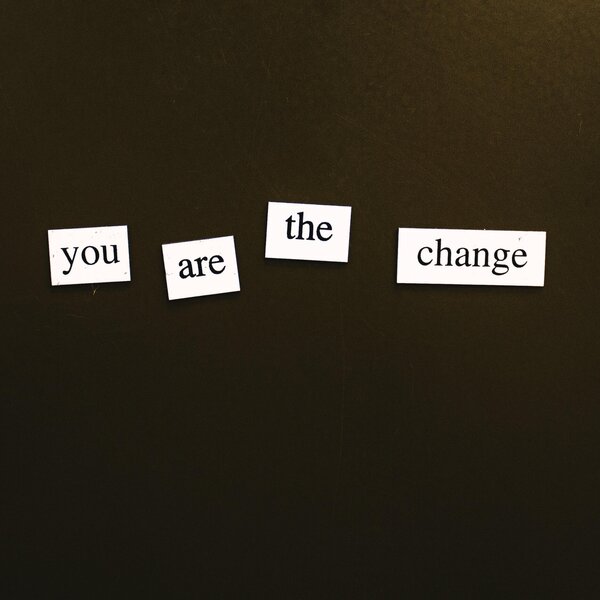I hate it when people tell me not to do something that they themselves do all of the time. I’m a firm believer that when trying to change someone’s behavior, you should model the desired actions you wish to see.
As a child, my mother used to tell me not to cuss, but she would turn right around and curse like a sailor around me. Or, she would tell me to light her cigarette on the kitchen stove, but not to take a hit off of it, and I couldn’t help but think, “Why was it cool for her to smoke when she forbids me from doing it?” I couldn’t wrap my mind around her logic. So, I finally built up the nerve one day to ask. Her reply “I am grown, and you are not. Until then, do as I say and not as I do!” I hated that answer then, and I still do.
At USP Coleman in Florida, I’m in the federal Bureau of Prisons’ primary rehabilitation programs. It’s called the Challenge program and, according to the FBOP website, it’s designed to “reduce antisocial peer associations, promote positive relationships, increase self-control and problem-solving skills and develop prosocial behaviors.” It places a special emphasis on violence prevention.
The program works to cultivate eight positive attitudes (caring, willingness to change, honesty, humility, gratitude, objectivity, open mindedness and responsibility) that we are encouraged to internalize as our foundational building blocks. And it works. I have seen positive effects in myself and among my peers as we navigate through the discussions.
The staff members who run the program are great; they really care about the guys. But here’s the rub: The way the staff/officers outside the Challenge program treats us is blatantly in violation of the attitudes and behaviors we are encouraged to adopt. It’s a case of, “do as you’re told, not as we do.” And that only gives justification to individuals who resist the program. After all, they think, “if they can act that way, then I should be able to do so as well.”
Now, the internal changes I am working on are for myself; so, regardless of what my peers, the officers or anyone else does, I am going to keep walking this path. But that doesn’t change the fact that the conduct of the people in charge has direct bearing on the individuals over which they have authority.
Here is one small example: A couple of weeks ago, my girlfriend spent hundreds of dollars to travel from D.C. to visit me. I asked her to come, because this was supposed to be the first weekend that regular visits (without COVID restrictions) would be allowed. To say the least, we were pumped, since we both highly anticipated being in each other’s company for eight hours on Saturday, Sunday and Monday. But things didn’t go as planned. First, on Saturday, she made it all the way inside the visiting hall only to be told there would be no visits that day. Then, on Sunday and Monday, visits were limited to two hours.
Let’s revisit those values: Prison staff weren’t honest with me or the others with visitors that weekend; we weren’t told that the schedule had changed until the day arrived.
Humility and open-mindedness were totally missing when they made the ruling on Saturday because the fence was down and on Sunday and Monday because were there were too many visitors and not enough seats. (They had forgotten to change the seating arrangement back to regular from COVID protocols — in other words, there were only 17 seats set up instead of the 50 that were needed.)
Given that they knew for two weeks that visits were going back to normal, I’d say that demonstrated a serious lack of responsibility.) They could and should have given the maximum time to individuals who traveled a long way, while shortening the visit for those who came from elsewhere in Florida and can visit often.)
None of the officers appeared to care that our relatives and other loved ones had traveled from all over the country to visit us, at great expense and after taking time off work.
No one said I’m sorry. No one commiserated. No one tried to think creatively about other solutions. There was just total disregard for us and our families. But in the meantime, we are expected to be compliant, respectful and disciplined, even when we are being wronged.
If I had filed a complaint with a lieutenant or demanded the visit I was entitled to, I would have been sent to the SHU (special housing unit, or the hole), even though I policy backed me up. And it happens all the time. We are locked down almost every day for hours at a time, for what appears to be no reason. If we ask why, the answer we get is, “Because I said so!” When we ask questions or don’t move fast enough, we’re talked to disrespectfully.
Prison is a microcosm of society. I see it in the news all the time: The “pillars” of our communities and our nation (police, politicians, clergymen, teachers, etc.) don’t model the behaviors they preach: Our government leaders rightfully criticize Russia’s for invading Ukraine, but conveniently forget that we did the same to Iraq years before. State governments all across the country refuse to ban automatic weapons because it would restrict individual freedom, yet many of the same officials have passed laws telling women they can’t have abortions. And in D.C., District leaders say they want Blacks to stay yet have failed to provide sufficient housing that we can afford.
It’s time for all of us to be the change we want in this world.




